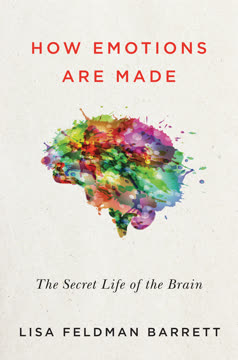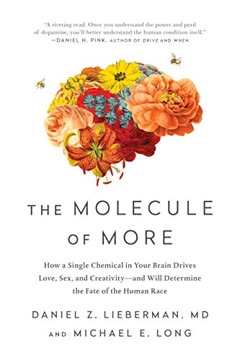Viktiga slutsatser
1. Stress är en fysiologisk reaktion på fysiska och psykologiska utmaningar
"Stressreaktionen kan mobiliseras inte bara som svar på fysiska eller psykologiska angrepp, utan också i förväntan på dem."
Kamp-eller-flykt-respons: Stressreaktionen är en komplex fysiologisk reaktion som förbereder kroppen för att hantera hot. Den involverar frisättning av hormoner som kortisol och adrenalin, vilket utlöser olika förändringar i kroppen:
- Ökad hjärtfrekvens och blodtryck
- Omdirigerad blodflöde till muskler
- Ökad vaksamhet och fokus
- Dämpad matsmältning och immunfunktion
Psykologiska stressorer: I det moderna livet utlöses stressreaktionen ofta av psykologiska faktorer snarare än fysiska hot. Dessa kan inkludera:
- Arbetsrelaterad press och deadlines
- Ekonomiska bekymmer
- Relationskonflikter
- Social ångest och offentlig talang
2. Stressreaktionen har utvecklats för kortvariga fysiska hot, inte kronisk psykologisk stress
"Om du är den zebran som springer för ditt liv, eller den lejonet som sprintar för sin måltid, är kroppens fysiologiska responsmekanismer superb anpassade för att hantera sådana kortvariga fysiska nödsituationer."
Evolutionär missmatch: Vårt stressresponsystem har utvecklats för att hantera akuta fysiska faror, som rovdjur eller naturkatastrofer. Men i det moderna samhället står vi inför:
- Kroniska, lågnivå stressorer
- Psykologiska och sociala påtryckningar
- Förlängd aktivering av stressreaktionen
Skadliga effekter av kronisk stress: När stressreaktionen ständigt aktiveras kan det leda till:
- Slitage på kroppens system
- Störda sömnmönster
- Nedsatt kognitiv funktion
- Ökad risk för olika sjukdomar
3. Kronisk stress kan leda till olika hälsoproblem och sjukdomar
"Om stressorer pågår för länge kan de göra dig sjuk."
Stressrelaterade hälsoproblem: Långvarig exponering för stresshormoner kan bidra till utvecklingen eller förvärringen av många hälsoproblem:
- Kardiovaskulära sjukdomar (t.ex. hypertoni, hjärtsjukdom)
- Metaboliska störningar (t.ex. diabetes, fetma)
- Gastrointestinala problem (t.ex. sår, irritabel tarm)
- Psykiska hälsostörningar (t.ex. depression, ångest)
- Försvagat immunförsvar
Mekanismer för stressinducerad skada: Kronisk stress kan skada kroppen genom olika vägar:
- Inflammation
- Oxidativ stress
- Störd hormonbalans
- Nedsatta cellulära reparationsprocesser
4. Stress påverkar flera kroppssystem, inklusive kardiovaskulära, metaboliska och immunologiska
"Stressreaktionen handlar om att förbereda din kropp för en explosiv konsumtion av energi just nu; psykologisk stress handlar om att göra allt detta för din kropp utan någon fysisk anledning överhuvudtaget."
Kardiovaskulära effekter: Stress kan påverka hjärthälsan genom:
- Ökat blodtryck och hjärtfrekvens
- Främjande av ateroskleros (åderförkalkning)
- Utlösande av arytmier och hjärtattacker
Metaboliska konsekvenser: Kronisk stress stör metabolismen genom:
- Förhöjda blodsockernivåer
- Ökad fettlagring, särskilt runt buken
- Insulinresistens och ökad risk för diabetes
Förändringar i immunförsvaret: Stress kan förändra immunfunktionen genom:
- Dämpad övergripande immunrespons
- Ökad inflammation
- Reaktivering av latenta virus (t.ex. herpes)
5. Individuella skillnader i personlighet och coping-stilar påverkar stressreaktioner
"Vi skiljer oss åt i de psykologiska filter genom vilka vi uppfattar stressorer i vår värld."
Personlighetsfaktorer: Vissa personlighetsdrag kan påverka hur individer uppfattar och reagerar på stress:
- Typ A-personlighet (tävlande, otålig)
- Neuroticism och benägenhet för ångest
- Optimism kontra pessimism
Coping-strategier: Olika tillvägagångssätt för att hantera stress kan påverka dess effekter:
- Problemlösande coping (att ta itu med stressorn direkt)
- Emotionsfokuserad coping (att hantera känslomässiga reaktioner)
- Undvikande coping (att ignorera eller fly stressorn)
Resiliens: Vissa individer är mer motståndskraftiga mot de negativa effekterna av stress på grund av:
- Starka sociala stödnätverk
- Effektiva stresshanteringsfärdigheter
- Positiv syn och känsla av syfte
6. Sociala faktorer som socioekonomisk status påverkar stressnivåer och hälsoutfall
"Om du vill öka dina chanser att undvika stressrelaterade sjukdomar, se till att du inte oavsiktligt tillåter dig själv att födas fattig."
Socioekonomiska skillnader: Låg socioekonomisk status är kopplad till:
- Högre nivåer av kronisk stress
- Ökad exponering för miljömässiga stressorer
- Begränsad tillgång till resurser för stresshantering
Hälsoskillnader: Sociala faktorer bidrar till skillnader i hälsoutfall:
- Högre frekvens av stressrelaterade sjukdomar i missgynnade befolkningar
- Minskat livslängd i lägre socioekonomiska grupper
- Intergenerationell överföring av stress och hälsorisker
Sociala determinanter för hälsa: Olika sociala faktorer påverkar stress och hälsa:
- Utbildningsnivå
- Yrkesstatus
- Grannskapsmiljö
- Socialt stöd och samhällsanknytningar
7. Stresshanteringstekniker kan hjälpa till att mildra de negativa effekterna av kronisk stress
"Stresshantering kan inte enbart bestå av den simplistiska lösningen 'Maximera kontroll. Maximera förutsägbarhet. Maximera utlopp för frustration.'"
Stressreduceringsstrategier: Olika tekniker kan hjälpa till att hantera stress:
- Mindfulness och meditation
- Regelbunden motion
- Tillräcklig sömn och näring
- Tidsplanering och prioritering
Kognitiva tillvägagångssätt: Att förändra tankemönster kan minska stress:
- Kognitiv omstrukturering (att utmana negativa tankar)
- Utveckla en tillväxtmentalitet
- Praktisera tacksamhet och positivt tänkande
Livsstilsförändringar: Att modifiera dagliga vanor kan förbättra stressresiliens:
- Begränsa koffein- och alkoholkonsumtion
- Delta i hobbyer och fritidsaktiviteter
- Odla starka sociala relationer
- Söka professionell hjälp vid behov (t.ex. terapi, rådgivning)
Senast uppdaterad:
FAQ
What's Why Zebras Don't Get Ulcers about?
- Focus on Stress and Health: The book explores the relationship between stress and health, particularly how chronic stress can lead to various diseases.
- Mind-Body Connection: It highlights the intricate connections between emotions, personality, and physical health, emphasizing the importance of understanding stress for managing health.
- Scientific Insights: Sapolsky combines personal anecdotes with scientific research to make complex ideas accessible, demystifying the science behind stress and its effects on the body.
Why should I read Why Zebras Don't Get Ulcers?
- Understanding Stress: The book provides insights into how stress affects your body and mind, helping you recognize signs of stress-related illnesses.
- Practical Applications: It includes practical advice on managing stress, which can improve your overall well-being.
- Engaging Writing Style: Sapolsky's narrative style blends humor with serious scientific discussion, making it enjoyable for both casual readers and those interested in psychology and health.
What are the key takeaways of Why Zebras Don't Get Ulcers?
- Stress Can Make You Sick: Chronic stress can lead to health issues like cardiovascular disease and immune dysfunction due to prolonged activation of the stress-response system.
- Role of Hormones: Hormones like glucocorticoids and epinephrine are involved in the stress response and can negatively impact health when activated too frequently.
- Importance of Social Support: Social connections and emotional support are crucial in coping with stress and mitigating its adverse effects on health.
How does stress affect the immune system according to Why Zebras Don't Get Ulcers?
- Immunosuppression During Stress: Stress can suppress immune function, making individuals more susceptible to infections and diseases.
- Temporary Immune Activation: The immune system can be temporarily activated during the initial phase of stress, but prolonged stress leads to a decline in immune function.
- Connection to Disease: Chronic stress-induced immunosuppression can increase the risk of autoimmune diseases and infections, highlighting the need for stress management.
What is the relationship between stress and gastrointestinal disorders in Why Zebras Don't Get Ulcers?
- Impact on Digestion: Stress disrupts normal digestive processes, leading to conditions like irritable bowel syndrome (IBS).
- Functional vs. Organic Disorders: Stress can exacerbate symptoms in functional gastrointestinal disorders, which are sensitive to stress.
- Mechanisms of Stress-Induced Symptoms: Stress increases contractions in the colon, causing discomfort and pain, illustrating the interplay between psychological stress and physical health.
How does Why Zebras Don't Get Ulcers explain the concept of allostasis?
- Definition of Allostasis: Allostasis is the process by which the body achieves stability through change, adapting to stressors by altering physiological parameters.
- Stress Response Mechanism: During stress, the body mobilizes resources to meet immediate demands, which can lead to health issues if activated too frequently.
- Allostatic Load: The cumulative wear and tear on the body due to chronic stress is known as allostatic load, emphasizing the importance of stress management.
What are the best quotes from Why Zebras Don't Get Ulcers and what do they mean?
- "Stress can make you sick.": This quote highlights the direct impact of stress on physical health, emphasizing the importance of managing stress to prevent illness.
- "You cannot really understand a disease in vacuo, but rather only in the context of the person suffering from that disease.": It advocates for a holistic approach to medicine, considering individual experiences and psychological factors.
- "Science is not meant to cure us of mystery, but to reinvent and reinvigorate it.": This reflects Sapolsky's belief in the beauty of science and its role in enhancing our understanding of complex phenomena like stress.
How does Why Zebras Don't Get Ulcers address the effects of stress on reproduction?
- Disruption of Hormonal Balance: Stress can lead to hormonal imbalances that disrupt reproductive functions in both males and females.
- Impact on Sexual Behavior: Stress negatively affects sexual desire and performance, impacting intimate relationships.
- Long-Term Consequences: Chronic stress can lead to infertility or complications during pregnancy, highlighting the importance of managing stress for reproductive health.
What is the significance of prenatal stress in Why Zebras Don't Get Ulcers?
- Impact on Fetal Development: Prenatal stress can lead to long-term health issues in offspring, including increased risks of metabolic syndrome and cardiovascular disease.
- Mechanisms of Programming: Stress hormones can cross the placenta, affecting fetal development and leading to changes in hormone levels and metabolic responses.
- Importance of Maternal Care: Supportive environments can help counteract the negative impacts of stress on fetal development.
How does Why Zebras Don't Get Ulcers explain the concept of stress-induced ulcers?
- Role of Helicobacter pylori: While bacteria play a significant role in ulcer formation, stress still contributes to their development.
- Mechanisms of Ulcer Formation: Stress increases acid production and impairs healing processes, exacerbating existing conditions.
- Psychological Factors: Stress can lead to unhealthy coping mechanisms like smoking or excessive drinking, further increasing ulcer risk.
How can I manage stress according to Why Zebras Don't Get Ulcers?
- Understanding Stressors: Identifying and understanding personal stressors is crucial for developing effective coping strategies.
- Stress Management Techniques: Techniques like mindfulness, exercise, and social support can help mitigate the physiological effects of stress.
- Long-Term Lifestyle Changes: Improving diet, fostering social connections, and engaging in regular physical activity can enhance overall well-being and resilience to stress.
How does Why Zebras Don't Get Ulcers relate stress to societal factors?
- Socioeconomic Status (SES): Lower SES is associated with higher stress levels and poorer health outcomes.
- Social Inequality: Disparities in wealth can lead to increased stress and health risks.
- Community Support: Strong community ties can help buffer against the negative effects of stress, emphasizing the importance of social capital.
Recensioner
Varför zebror inte får magsår hyllas för sin engagerande och humoristiska metod att förklara stressens vetenskap. Läsarna uppskattar Sapolskys förmåga att göra komplexa ämnen lättillgängliga. Många fann boken ögonöppnande och hjälpsam för att förstå sina egna stressreaktioner. Även om vissa önskade mer praktiska råd för att hantera stress, värderade de flesta den djupgående utforskningen av stressens fysiologiska effekter. Några läsare noterade föråldrat språk när det gäller icke-västerländska kulturer. Sammanfattningsvis rekommenderas boken varmt för sin insiktsfulla och underhållande granskning av stressbiologi.
Similar Books



















